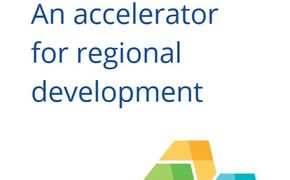On 1 and 2 July 2021, the Policy Learning Platform held an online peer review for the University and Hanseatic City of Greifswald (Germany), which requested advice to better address its policy challenge on deciding future uses of a former landfill site in the frame of its urban development strategy.
Read the recommendations in the follow-up report.
State of the issue
With the end of the active degasification process at the closed Salinenstraße landfill almost in sight, Greifswald is now determined to prepare the post-landfill future of this site, which is located only a few steps away from its city center.
Multiple solutions can be explored to include all relevant stakeholders in the participatory process that will define how to turn the former landfill into a publicly accessible site devoted to leisure and sustainability and different land use and rehabilitation options can be considered to meet this ambitious goal, considering landscape features and urban development prospects in this vibrant university city overlooking the Baltic Sea.
Against this backdrop, Greifswald demanded a peer review to tackle specific aspects of its policy challenge:
- Early-stage exploration of implementation-oriented options. The former landfill is seen as a valuable and attractive site to be given back for community use. To drive its future development the City adopted a plan underpinned by one goal: changing the spatial pattern from ‘peripherisation’ to functional inclusion. Technically viable solutions are now needed to implement the plan.
- Successful stakeholder engagement and communication strategies. Greifswald wanted to collect insights on how to bring stakeholders around its vision on the future of the former landfill site and on how to convey it to the general public.
Peers from across Europe
Alongside Katharina Krell and Astrid Severin, our low carbon economy and environment and resource efficiency Thematic Experts, four excellent peers were invited and participated to the peer review:
- Clyde Falzon Bouvett, WasteServ Malta Limited (Malta).
- Eddy Wille, Governmental agency of Flanders OVAM-VLAIO (Belgium).
- German Coca, Andalusian Ministry of Agriculture, Livestock, Fishing and Sustainable Development (Spain).
- Michel Chalot, Université de Bourgogne Franche-Comté (France).
They came together to offer their expertise and professionalism to help the City of Greifswald on the abovementioned issues. They handed useful suggestions on land use and landfill rehabilitation solutions with a high degree of transferability that could be successfully replicated in Greifswald based on successful experiences in other EU regions.
Recommendations and conclusions
The peers shared their knowledge on process and planning steps as well as expected timelines and workloads for various land use and rehabilitation options. They stressed the importance of identifying the drivers and the high-level policy objectives behind landfill rehabilitation efforts. They delved into upfront communication strategies, stakeholders’ involvement and participation, risk assessment and management as well as landfill rehabilitation costs.
Furthermost, thye presented real-world case studies that Greifswald may consider for turning its former landfill into a nature conservation park, a space devoted to sport and recreation, a landscape observation point, a natural area restored thanks to phytomanagement techniques, a ‘living-lab’ where research and innovation are practiced and citizens are educated about environmental issues.
You can find the policy challenges of the host and all the peer suggestions in the follow-up report.
Satisfied by two full days of intense exchanges under the aegis of the PLP, Anke Krüger, Head of the Environment and Nature Conservation Department at the City of Greifswald, commented:
«We are truly amazed by the competence of the peers and by the impeccable organisation of the peer review».
Erik Wilde, Head of the Urban Development Department at the City of Greifswald, added:
«When I heard about the peer review, I was skeptical. But these two days clearly proved the great value of peer learning. We looked at what others do and we are now better equipped to tackle our own challenge».
The host used the peer review to involve local stakeholders in a first and very lively discussion, and is now assessing the recommendations received from the peers to see how they could inform the decision-making process on the future of its former landfill.









